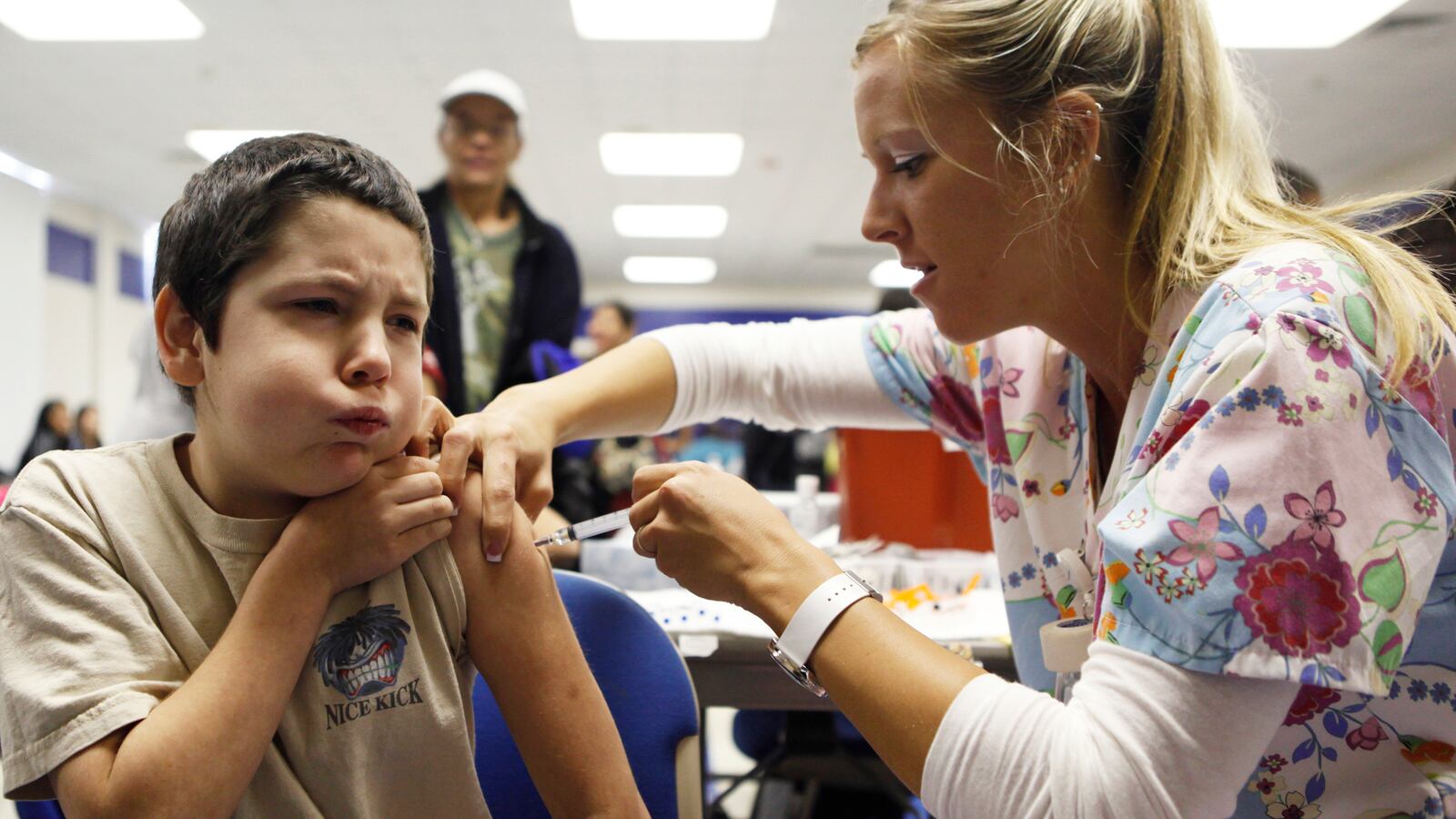You have to have a thick skin to be a pediatrician.

Often enough, the minute I enter my exam room the patient bursts into hysterical tears.
Parents are invariably apologetic, and I always tell them they needn’t be. After all, my office is where unpleasant things can happen. That’s where the blood draws and throat swabs take place. The least I can be is understanding.
For many kids, no terror is greater than shots—not so long ago, a tearful child got up and spontaneously hugged me when I reassured him there would be “no pokes” at that visit.
At my practice we medical providers administer vaccines ourselves, and I pride myself at doing it very well. But sometimes no amount of soothing makes a difference, and I simply have to get it over with as quickly as I can. I don’t like doing it, but it’s an important, necessary and non-negotiable part of my job.
Because of this, I have developed a bit of a pet peeve: I really can’t stand it when parents make inappropriate comments about shots.
These comments come in two flavors.
The first, comparatively benign version is the joke. It’s usually something along the lines of “Hey, doc! While we’re here, why don’t you give my kid a shot?” A variation when I actually am going to give a vaccine is “Make sure to use a big needle!”
Yes, parents really joke about that. Yes, I have heard it many, many times. No, I am not kidding.
I’m never quite sure for whom these parents are telling these jokes. I certainly never find them funny, and I don’t recall a single child laughing either. To my mind, this is roughly as droll as my knocking on a small child’s front door at bedtime, going to her bedroom, and then cracking wise about checking to see if the monster has come back while inspecting her closet. Hilarious! Frankly, these jokes always sound vaguely hostile, and it makes me wonder where that hostility is coming from and at whom it is directed.
Worse than the jokes, however, are the threats.
As I’ve noted, kids are often not on their best behavior in my office. The rooms aren’t that big, and try as I might to stay on schedule sometimes they may be waiting for a little while. I understand parents being at their wits’ end after being cooped up with an unruly child.
That said, saying to a child “If you don’t behave, I’m going to have the doctor give you a shot!” makes my hair stand on end. I abjectly hate it.
Surely parents wouldn’t say this kind of thing if they simply thought through what they were implying.
First of all, it completely undermines me as a trustworthy and compassionate caregiver. Instead, it makes me appear capricious, malevolent and cruel. It implies that I am willing to inflict pain punitively at the parent’s behest. It justifies the child’s fear of me.
Furthermore, it tells children that shots aren’t really about keeping them healthy. They’re disciplinary tools. My assertions that shots are an important part of keeping them from getting sick are turned into lies.
Finally, what does it say if the child really does calm down but I have to give vaccines anyway? How monstrous must I seem? If a parent has stated that vaccines are a consequence of bad behavior, then I cannot imagine how unfair and simply mean I must appear to children who get shots after they behave themselves.
In these situations, I am left with little choice. I have to contradict the parent. In the most light-hearted way I can, I tell them that I’d never give them shots if they didn’t really need them. I tell them I’d never give them a shot except to keep them healthy. If they’re there for a visit that doesn’t call for vaccines, I let them know that no shot is coming. I regret that the parent’s own legitimacy takes a hit when I say these things, but since I wasn’t the one who put it in jeopardy in the first place I don’t feel all that bad about it.
I have a job to do, and that job is to safeguard my patient’s health and well-being. I don’t think the parents who make cracks or bogus threats about vaccines intend any real harm, because I don’t believe they give them much thought. I do.
I have my own relationship to build with my patients. I take that obligation very seriously. Over the years, during which I get to know the children whose care has been entrusted to me, I work hard to make them feel at ease in my office. I try to be as fun and non-threatening and accessible as I possibly can. It is truly important to me.
And I am nobody’s goon. Not even a parent’s.






